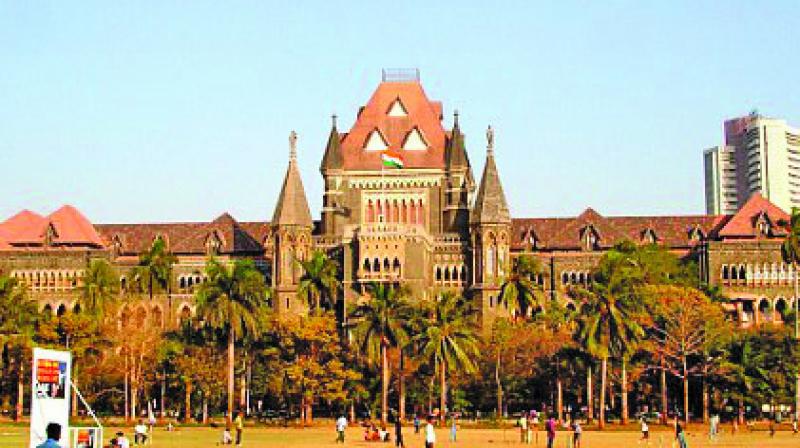
Introduction
In Arbitration and Civil Litigation, a recurring grey area has been whether interest continues to accrue on the decretal amount when a judgement-debtor deposits a sum with the court or tenders a bank guarantee in order to stay execution of a decree. The same issue recently appeared before the Bombay High Court (“Court”) in the case of Mohit Minerals Pvt. Ltd. vs. Maharashtra Small Scale Industries Development Corporation Ltd. (Chamber Summons No.287 of 2017). The main question of the matter related to the right to interest on the amounts deposited in court and not refundable to the decree-holder unconditionally.
Factual Matrix
On 20th April 2017, the arbitral tribunal declared an award in favour of Mohit Minerals Private Limited (“Applicant”), and directed the Maharashtra Small Scale Industries Development Corporation Limited. (MSSIDCL) (“Respondent”) to pay Mohit Minerals Rs. 15 crore, representing the amount of a bank guarantee encashed by MSSIDCL, along with interest at nine percent per annum from 1st August 2012 until realisation, and an amount of Rs. 50 lakh, which had been forfeited as a cash deposit, with similar interest.
MSSIDCL challenged the award and sought a stay of its enforcement. The Court, on 22nd November 2017, stayed the award, subject to the condition that MSSIDCL deposit Rs. 22 crore with the Court, which included the principal amount and a portion of the interest awarded. The Applicant was allowed to withdraw this sum, provided it furnished a bank guarantee for the equivalent amount and undertook to return the money if the respondent ultimately succeeded in the final hearing.
Main Issue
The principal issue in this case was whether the decree-holder, Mohit Minerals, was entitled to continue earning interest on the decretal amount after MSSIDCL had deposited the sum with the court and Mohit Minerals had withdrawn it against a bank guarantee and whether such a conditional withdrawal constituted “payment” under Order XXI Rule 1 of the Civil Procedure Code (CPC), which governs the modes of paying money under a decree.
Arguments by the Petitioner (Mohit Minerals)
The Petitioner contended that the deposit of Rs. 22 crore by MSSIDCL in the Court did not amount to “payment” under the decree and since the withdrawal was conditional upon furnishing a bank guarantee, the money had not been unconditionally paid to them. As the withdrawal was subject to furnishing a bank guarantee, the money was not paid to it in an unconditional manner.
It was highlighted that the deposit had been made by a judgement-debtor with a view to preclude execution of the decree, and thus it should not wipe out the liability for interest. Reliance was placed on Order XXI Rule 1 of CPC, which provides that the various modes of payment of money under a decree are – (i) by depositing in Court, or (ii) by depositing in such manner as the court directs, or (iii) [on or before] date on or at any time before which such payment is to be made, into the Bank. Since the withdrawal in this case was hedged with conditions—namely, the requirement to provide a bank guarantee—there was no absolute transfer of funds to Mohit Minerals, and interest should continue to accrue until the conditions were removed and the payment became final.
Arguments by the Respondents (MSSIDCL)
MSSIDCL, the judgement-debtor, argued that once the deposit was made in court and the decree-holder was allowed to withdraw the sum, it should be considered as full payment under the decree. They contended that the requirement to furnish a bank guarantee was merely a procedural safeguard to ensure repayment if MSSIDCL ultimately succeeded in the final appeal. According to MSSIDCL, the sum was deposited in compliance with the court’s order, and interest should cease from the date of deposit.
MSSIDCL argued that the petitioner could not claim interest on a sum it had already accessed, regardless of the bank guarantee requirement. It was also argued that once a sum is deposited in court and made available for withdrawal by the decree-holder, the liability for interest ceases.
Judgement
The Court held that the deposit made by MSSIDCL did not constitute payment under the decree because the withdrawal by the decree-holder was conditional upon providing a bank guarantee. By Order XXI Rule 1 of the CPC, “payment” is defined to mean an unequivocal act on the part of the judgement debtor, which has the effect of extinguishing the decretal debt in favour of the decree holder. In the context of “payment” and “deposit” in the context of execution proceedings, a deposit to stay execution especially when the withdrawal of the same is subject to certain conditions, is not payment because the title of the money does not pass to the decree-holder Citing the Supreme Court’s decision in P.S.L. Ramanathan Chettiar vs O. Rm. P. Rm. Ramanathan Chettiar (1968 SCR (3) 367), the court noted that the petitioner’s entitlement to interest continues until the sum is either unconditionally paid or realised through execution.
The Court rejected MSSIDCL’s argument that interest should cease upon withdrawal, holding that the conditional nature of the withdrawal did not extinguish the liability for interest. Since the bank guarantee requirement meant that Mohit Minerals did not have absolute control over the funds, interest would continue to accrue until the conditions were lifted or the decree was fully satisfied.
The court directed both parties to compute the outstanding interest, factoring in the interest that had accrued on the fixed deposit made by the court with the deposited funds. This computation would ensure that Mohit Minerals received the appropriate interest until the actual realisation of the award.
Conclusion
The judgement in Mohit Minerals reinforces the legal principle that a deposit in court, if conditional, does not extinguish the liability for interest under a decree. The Court has also squarely covered the distinction between “payment” and “deposit” in execution proceedings and held that the interest on the deposit made continues to accrue until the decree-holder gains unconditional access to the funds.
This judgement is truly a landmark decision in the area of arbitration and serves as a reminder for judgement-debtors that merely depositing money in court to secure a stay of execution may not be enough to stop the clock on interest. Unless the decree-holder is allowed to withdraw the funds unconditionally, the liability for interest remains. The judgement reaffirms that the decree-holder’s right to interest is closely tied to the concept of final and unconditional payment, ensuring that they are not disadvantaged by procedural delays or conditional withdrawals.


This article has been authored by Gaurav Gharat, Associate at Dhruve Liladhar & Co., Advocates, Solicitors & Notary.
